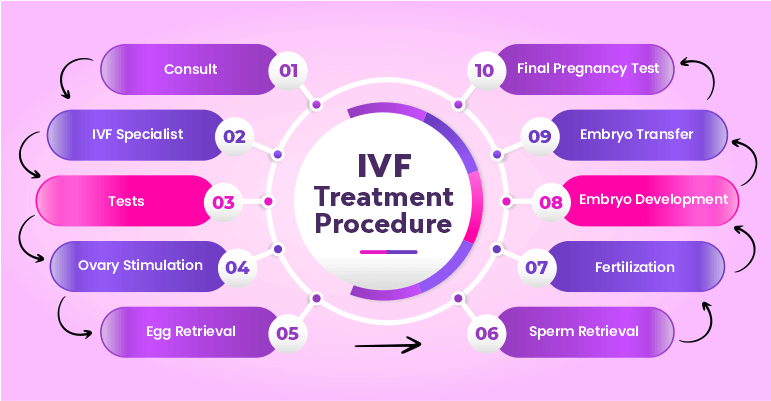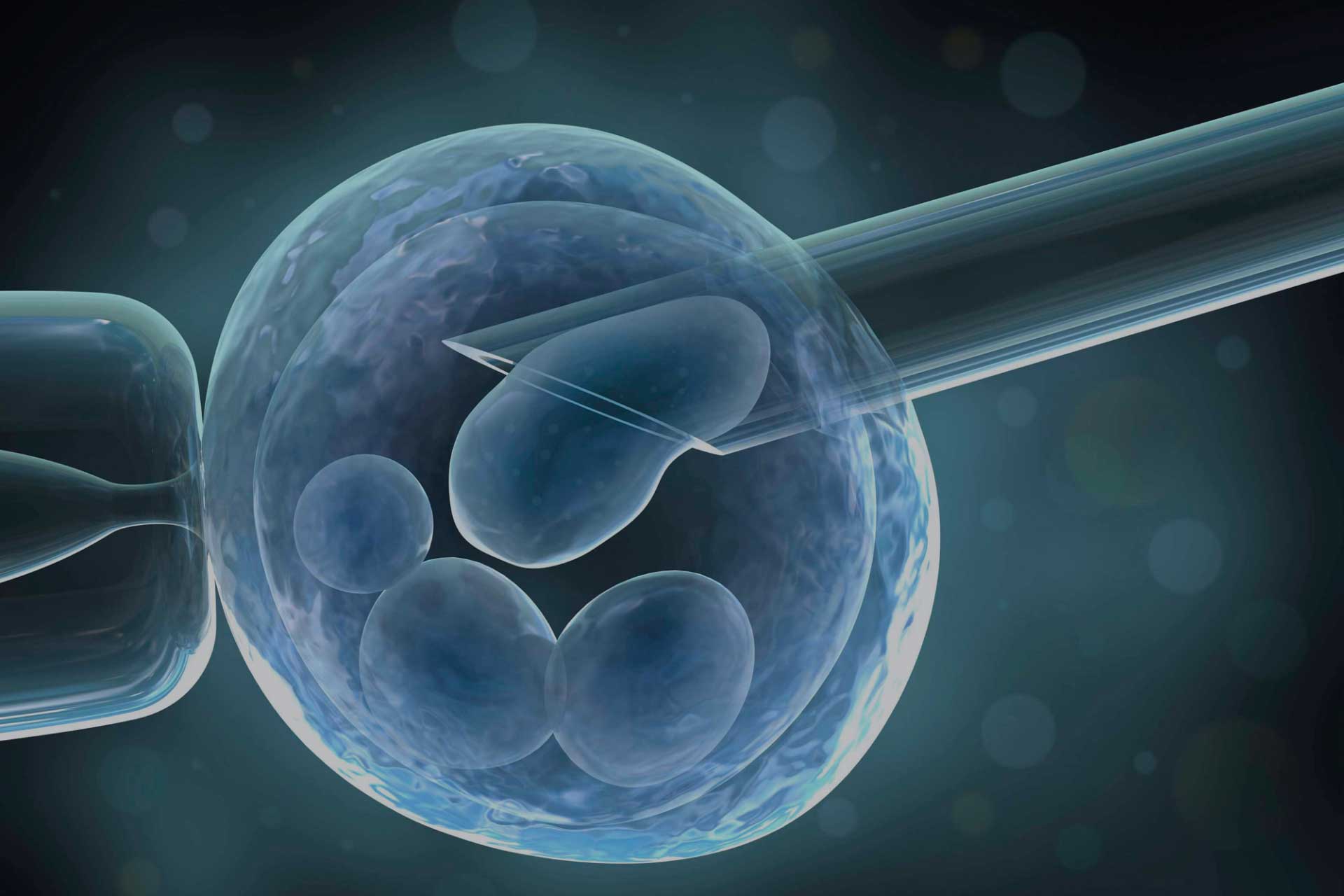Why India is a preferred destination for Infertility Treatments

As per the latest fertility research, one out of eight couples is suffering from infertility. Infertility means an unsuccessful pregnancy even after trying 6 months to one year with unprotected sex. The most challenging aspect of infertility treatment is the emotional and financial burden on would-be parents.
The infertility treatments are fairly successful but do not guarantee 100% confirmation of being parents. That is why childless couples look out for cross-border fertility treatments to avoid the ridiculously high cost of infertility treatment in Western countries.
For many years, India has preferred destination for infertility treatments. In this article, we will explore more why so.
Traditionally women are associated with infertility, but it is now clear that male-related infertility is common as well.
Begin your surrogacy journey with IVF Conceptions today!
Mobile: +91-8800481100 ( WhatsApp, Line, Viber)
Email: neelam@ivfconceptions.com
Web: www.completesurrogacy.com

Understanding Infertility Treatment
Iinfertilityisdefined as an unsuccessful pregnancy after six months to a year of unprotected sex. The emotional and financial strain on prospective parents during infertility treatment is considerable.
Seeking to alleviate this burden, many childless couples turn to cross-border fertility treatments in countries like India, where the cost is significantly lower than in Western nations. This article delves into why India has become a preferred destination for infertility treatments.
What do you mean by infertility treatments?
Thanks to advanced medical technology, there are lots of ways to help people with all kinds of fertility issues. The options that are best for you depend on your personal situation and what’s causing your infertility.
When it comes to infertility treatments, each case is unique and needs individual and personalized care and attention.
The application of any of the different methods or procedures to a woman or man to increase the chance for a woman to conceive a baby is known as fertility treatment.
Additional guide for surrogacy in India:
Cost of Surrogacy in Mumbai: Affordable Options
Top 5 Best Surrogacy Doctors in Mumbai With High Success Rate (2023)
Best IVF Centers in India – IVF Conceptions
Is Surrogacy in India For Overseas Citizenship of India (OCI) Allowed
Latest Surrogacy Law in India- Surrogacy (Regulation) Act, 2021
Is Surrogacy for NRI in India Allowed?
Fertility Treatments in India
India has been a growing and budding market for fertility treatments since 2002.
So, there are different types of affordable fertility treatments performed in India. Some of them are –
IVF – A popular infertility treatment is in-vitro fertilization (IVF).
The process starts with – ovaries being stimulated by the use of “fertility drugs” to grow multiple follicles. Ultrasound monitoring of the number and development of the follicle along with blood hormone levels determines when the eggs mature with a single injection.
The fertility doctor then uses a small needle to extract the eggs from the ovaries, while the woman undergoes light anesthesia and fertilizes them with sperm in a specialized laboratory.
The eggs are cultured and grow into embryos after fertilization occurs. The specialist re-implants the embryos back into the uterus three to five days later.
This process is known as embryo transfer. When embryos are grown till day 5 in the lab and then transferred is known as blastocyst transfer, and it has more chances of implantation as it is more viable to grow.
When the intended mother is not able to carry the baby due to medical or personal reasons, the embryo transfer can be done in a different woman, known as the gestational carrier or more commonly surrogate mother.
IVF (In-Vitro Fertilization) in nutshells:
- The IVF process involves stimulating ovaries with fertility drugs, extracting mature eggs, fertilizing them with sperm in a specialized laboratory, and re-implanting embryos into the uterus.
- Blastocyst transfer, where embryos are cultured for five days before transfer, enhances implantation chances.
- IVF with egg donation is recommended for cases with diminished ovarian reserve, achieving higher success rates.

IUI (intrauterine insemination) –
IUI works by directly bringing sperm cells into your uterus around the time you ovulate, helping the sperm get closer to your egg.
It reduces the time and distance that the sperm has to travel, making fertilizing the egg easier. You can take fertility medicines that stimulate ovulation before the insemination procedure. Your friend or donor gathers Sperm. It goes through a “sperm washing”.
The doctor will then place the sperm right inside the uterus. Pregnancy occurs as your egg is fertilized by sperm and the fertilized egg implants in the uterus lining. IUI is a simple, low-tech technique, and may be less costly than other fertility treatment forms.
IUI (Intrauterine Insemination) in nutshell:
- IUI involves placing sperm directly into the uterus, reducing the time and distance sperm travel, and increasing the likelihood of fertilization.
- It is a simpler, low-cost technique compared to other fertility treatments.
IVF with egg donation-
Around 40% of the IVF cycle needs an egg donor to have the optimum success rate of IVF. These are the cases when a female partner is an elderly woman with less ovarian reserve.
In India, the intended parents can choose the egg donor of their choice (but the egg donor is anonymous). The outcome of the IVF success rate is much higher if the young egg donor is used for IVF.
Gestational Surrogacy –
Gestational surrogacy is an assisted reproduction system in which intended parents work with a surrogate mother who carries their baby until birth.
When a female parent cannot carry the baby safely due to any reason, intended parents use surrogacy to start or extend their families. Also, in India, only the close relatives of either of the intended parents can act as surrogates.
Gestational surrogacy allows intended parents to work with a surrogate mother who carries the baby until birth. In India, only altruistic surrogacy is allowed as per the latest surrogacy laws in India.

IVF-ICSI(Intracellular sperm injection)–
A tiny needle, called a micropipette, is used in the ICSI process to inject one single sperm into the middle of the egg. When fertilization occurs, the embryo develops 1 to 5 days in the laboratory before it is moved to the woman’s uterus.
The ICSI is done in most of the cases of the IVF process. In the case of severe male infertility, ICSI is the preferred means of fertilization.
ICSI involves injecting a single sperm into the egg using a micropipette, especially beneficial in cases of severe male infertility
 MESA –
MESA –
Microsurgical aspiration of the epididymal sperm (MESA) is usually performed in people with vassal or epididymal obstructions. The incision is made in the scrotal skin during the operation, and the testis and the epididymis are exposed.
The epididymal tubules will be opened using an operating microscope, and sperm collected. MESA helps surgeons collect vast amounts of sperm that can be preserved and used in future pregnancy cycles. This removes the need for future treatments and reduces the epididymal scarring size.
MESA (Microsurgical Epididymal Sperm Aspiration) and TESA (Testicular Sperm Aspiration) is procedures to collect sperm in cases of vasal or epididymal obstructions, providing options for future pregnancy cycles.
TESA –
Testicular sperm aspiration is a treatment for people who are getting IVF / ICSI sperm collected. It is performed in the operating room with local anesthesia and is coordinated with the egg retrieval of their female partner. A needle is inserted into the testis and sperm. TESA is performed for obstructive azoospermia in men.
Why India is a preferred destination for IVF?
In India cities like New Delhi, Kolkata, Mumbai, Chennai, Hyderabad, and Bangalore, are best known for fertility treatments. So, here are the reasons why go for IVF treatments in India-
Several factors contribute to India’s prominence in fertility treatments:
 High-Class Treatment: IVF clinics in major Indian cities boast advanced facilities and modern infrastructure.
High-Class Treatment: IVF clinics in major Indian cities boast advanced facilities and modern infrastructure.- Qualified and Experienced Doctors: Fertility doctors in India are qualified, experienced, and often trained in Western countries, ensuring the latest techniques are employed.
- Affordability: India offers the most cost-effective fertility treatments globally, making it an attractive option for international patients.
- Ease of Process: India’s streamlined visa process and English-speaking professionals simplify the journey for foreign couples seeking medical treatment.
- Comprehensive Services: Beyond medical procedures, IVF clinics in India offer one-on-one counseling sessions, addressing the emotional aspects of fertility treatments.
Cost of fertility treatments in India
India provides affordable infertility treatments to patients all over the world.
- In the case of IVF, the whole procedure can be performed between 2.5 lakhs to 3 lakhs. In the case of donor eggs are used, 3.5 lakhs can be set aside for the IVF treatments.
- In the case of IUI, the cost can range from 10,000 to 15,000 depending on the patient’s other needs.
- In the case of surrogacy, the cost can range between 10 lakhs to 18 lakhs.
 Surrogacy in India:
Surrogacy in India:
Understanding Altruistic Surrogacy
Altruistic surrogacy is a noble act where a woman selflessly carries a child for another couple or individual without any financial compensation.
Sometimes, it is only hope for those who are unable to conceive through traditional means. The altruistic surrogacy model aims to prioritize the well-being and emotional connection between the surrogate mother and the intended parents.
In India, surrogacy is regulated by the Surrogacy Law of 2021, which permits only altruistic surrogacy for humanitarian reasons. This legal framework is designed to safeguard the rights, safety, and privacy of all parties involved in the surrogacy process.
Who Can Opt for Altruistic Surrogacy in India?
The Surrogacy Law in India lays down specific eligibility criteria for both prospective parents and surrogate mothers. To seek surrogacy services:
For Prospective Parents:
- You must be a married couple.
- The male partner should be between 26 and 50 years old, while the female partner should be between 23 and 50 years old.
- You should provide a medical professional’s infertility certificate to establish your inability to conceive.
For Surrogate Mothers:
- Surrogate mothers should have the genuine intention to carry a child for another couple without any financial gain.
- They must fall within certain age and marital status parameters.
- Surrogate mothers must already be mothers themselves, demonstrating their maternal experience and mental strength.
- Certificates of physical and mental fitness are mandatory to ensure their health and well-being.
The Approval Process for Surrogacy
The Indian Surrogacy Act of 2021 outlines a meticulous approval process to ensure ethical surrogacy procedures. To initiate the process:
- An application, comprising the surrogate mother’s medical and family history and a medical fitness certificate, must be submitted to the National Surrogacy Board for approval.
- Surrogacy centers play a crucial role in facilitating the surrogacy agreement, coordinating medical procedures, and ensuring the well-being of all parties involved.
- Once the application is accepted, intended parents can begin their journey towards parenthood with the support of a recognized surrogacy center.
Affordable Surrogacy Options at IVF Conceptions
Affordability is a significant concern for many individuals and couples seeking surrogacy. Exploring the cost-effective options available in India can make this path to parenthood more accessible.
IVF Conceptions offers a range of surrogacy options to meet your specific needs:
- Assured Surrogacy: Our secure surrogacy package includes multiple attempts using your own eggs, providing you with a cost-effective option to start your surrogacy journey.
- Guaranteed Surrogacy: If you seek a 100% guarantee of a healthy baby, our guaranteed surrogacy package, which includes a donor egg, is the ideal choice.
The Cost of Surrogacy in India
First of all surrogacy cost in India is much lower than in other international countries like Georgia, Ukraine, Mexico, and USA. In metro cities- the cost of surrogacy is a bit higher as compared to the rest of the states, due to good medical technology and experienced fertility doctors.
Now, let’s dive into the heart of the matter: surrogacy costs in India. At IVF Conceptions, we understand the financial aspects of surrogacy are a significant concern for intended parents. The cost of altruistic surrogacy in India is around 20 Lacs INR including the admin and medical procedure.
Here’s a breakdown of surrogacy costs:
- Surrogacy with Assured Package: Our assured surrogacy package starts from 18 to 20 lakhs approximately, providing you with multiple attempts to achieve a successful pregnancy.
- Guaranteed Surrogacy with Donor Egg: For those seeking 100% surety of a healthy living baby, our guaranteed surrogacy packages start from 20 lakhs (excluding medical complications). However, to accept this type of program, we need to confirm the eligibility criteria.
Why Choose IVF Conceptions for Surrogacy?
You might wonder why IVF Conceptions is the best choice for your surrogacy journey. Here are some compelling reasons:
- Attractive Surrogacy Cost Packages: We offer some of the most competitive surrogacy packages in India, Mumbai, and internationally.
- Legal Support: Our team provides comprehensive legal support throughout the surrogacy treatment, ensuring a smooth and legally sound process.
- International Standards: We adhere to international standards in surrogacy programs and use cutting-edge treatments and equipment.
- Experienced Team: Our highly experienced and trained professionals are dedicated to your success.
- Friendly Approach: We prioritize a friendly and approachable environment for our patients, ensuring you feel comfortable throughout your journey.
- Experience and Expertise: We have more than 13 years of experience with domestic and international surrogacy programs.
- Convenient Location: IVF Conceptions is conveniently located and available 24/7 to meet your needs.
 Conclusion
Conclusion
India’s reputation as a preferred destination for fertility treatments stems from its commitment to providing high-quality, affordable, and accessible options for individuals facing infertility challenges.
Prospective parents can confidently choose India for fertility treatments, knowing they will receive world-class care without compromising on quality.
Therefore, one can definitely go for fertility treatments in India without worrying about the quality of treatments.
If you’d like to learn more about IVF, Egg Donation, or surrogacy services globally, check out the rest of our website at IVF Conceptions. We offer legally secure and affordable surrogacy consulting services for FREE.
Begin your surrogacy journey with IVF Conceptions today!
Mobile: +91-8800481100 ( WhatsApp, Line, Viber)
Email: neelam@ivfconceptions.com
Additional guide for surrogacy in India:
How to Find Surrogate Mothers in India
How Much Does Surrogacy Cost In India ( in 2023)?
Legal Issues Related To Surrogacy In India
Surrogacy In India-Everything Parents Need to Know
Top 10 Surrogacy Doctors in India With Affordable Surrogacy Costs

Frequently Asked Questions (FAQs) for infertility treatments in India:
Q: What is infertility, and how is it defined?
Infertility is characterized by the inability to achieve a successful pregnancy after six months to one year of unprotected sex. It affects approximately one out of eight couples.
Q: Are infertility issues only associated with women?
A: No, infertility can affect both men and women. Male-related infertility is increasingly recognized as a common factor.
Q: What are the different types of fertility treatments available in India?
A: India offers a range of fertility treatments, including in vitro fertilization (IVF), Intrauterine Insemination (IUI), IVF with egg donation, surrogacy, IVF-ICSI, MESA, and TESA.
Q: How does IVF work, and what are the steps involved?
A: IVF involves stimulating ovaries, extracting eggs, fertilizing them with sperm in a laboratory, and re-implanting embryos into the uterus. The process may include blastocyst transfer for increased viability.
Q: What is the role of IUI in fertility treatments, and how does it work?
A: IUI, or Intrauterine Insemination, involves placing sperm directly into the uterus, reducing the travel distance for sperm and increasing the chances of fertilization.
Q: How does surrogacy work, and who can act as a surrogate in India?
A: Gestational surrogacy involves a surrogate mother carrying the baby until birth. In India, only close relatives of the intended parents can act as surrogates.
Q: What is the significance of IVF-ICSI, and when is it recommended?
A: IVF-ICSI (Intracellular Sperm Injection) involves injecting a single sperm into the egg. It is recommended in cases of severe male infertility.
Q: What are MESA and TESA, and in which situations are they performed?
A: MESA (Microsurgical Epididymal Sperm Aspiration) and TESA (Testicular Sperm Aspiration) are procedures to collect sperm in cases of vasal or epididymal obstructions.
Q: Why is India considered a preferred destination for fertility treatments?
A: India is preferred for its high-class treatment facilities, qualified and experienced doctors, advanced infrastructure, affordability, streamlined visa processes, English-speaking professionals, and comprehensive counseling services.
Q: What is the cost of fertility treatments in India?
A: The cost varies across procedures – IVF: ₹2.5 lakhs to ₹3 lakhs, IUI: ₹10,000 to ₹15,000, and Surrogacy: ₹10 lakhs to ₹18 lakhs.
Q: How can foreign couples navigate the process of seeking fertility treatments in India?
A: India provides easy visa transitions, skilled English-speaking professionals, and a well-established concept of fertility tourism. Fertility consultants and travel agents can assist in making the process seamless.
Q: Is it possible to receive affordable and high-quality infertility treatments in India?
A: Yes, India is known for providing affordable infertility treatments without compromising on quality, making it a reliable option for individuals facing fertility challenges.
Our team has over 14 years of experience facilitating surrogacy arrangements, egg donation, and serving as an advocacy resource for infertile couples and LGBTQ individuals seeking to build families. Till now we have helped and supported thousands of the intended parents with their family-building journey, and we can help you as well. Happy to share the references from the past IPs if needed.
Contact us:
Mobile: +91-8800481100 ( WhatsApp, Line, Viber)
Email: neelam@ivfconceptions.com